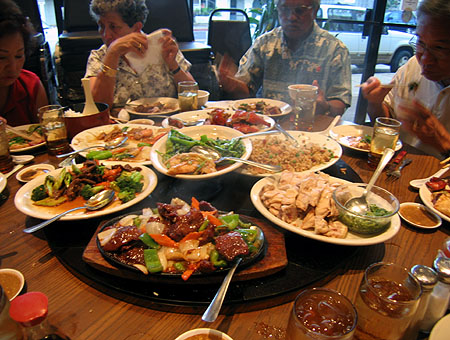Travelling abroad for a business trip? You might feel overwhelmed when it comes to practicing international business etiquetteor settling in and adjusting to local customs. But, don’t fret – just yet.
Travelling globally for business can actually be a rewarding experience if you’re open to learning about the traditions and practices of the country you’re visiting. In fact, showing enthusiasm and interest in your host country’s culture can actually be very good for business.
Top 6 Tips for Business Travelers
Here are the top six tips offered by Fox Business, to help you adjust to a new country and come away with the business deal you want:
Observe Local Customs
The best way to adjust to a different new culture during business is simply through observation. Patrick Gray, president of the Prevoyance Group, has lived and worked across numerous continents.He suggested, “Watch how others dress, greet each other and interact with other locals.”
Local customs are often formed over many generations so you will certainly make mistakes. As long as you’re a conscious observer, people will know you’re trying and forgive the occasional (and inevitable) missteps.
Practice Proper Business Etiquette
When conducting business internationally, it’s crucial to remember that you represent not only yourself but also your country and organization. Understanding international business etiquette, including cultural norms and customs, is essential. Whether you’re doing business in the United States or expanding globally, proper attire, punctuality, and respect for local customs are paramount. In many cultures, maintaining eye contact is a form of respect, while in others, it may be considered impolite. Similarly, the use of smartphones during meetings can vary widely, so being aware of these differences can help you establish strong professional relationships and avoid cultural misunderstandings.
Learn About the Country
Since the United States’ culture and politics reach many corners of the globe, chances are that the people you encounter on your business trip will know the name of our president, have an opinion on government and may even have a favorite American television show. You cannot be an expert on every country (nor should you pretend to be), but you should research the country to develop a basic understanding. This simple gesture will communicate that you are an open-minded individual who thinks globally.
Research Cultural Differences
You shouldn’t just learn about the country in general. You should also research how you should operate in the culture specifically. You are, after all, a visitor and should show respect, as your host country conceives of it. Just a little research can go a long way in learning what your host country thinks is and is not appropriate.
Embrace Cultural Differences
Doing business in a different country can be frustrating because you may perceive flaws in the way they execute their business affairs, just as they may perceive flaws in the way you execute your business affairs. Sometimes there are preferred methods for a particular task, but the optimal approach to a specific business maneuver won’t exclusively exist in one country or the other. This is where both cultures can learn from the other. However, since you are a guest in their country, adopt their business manners, at least at first. Enter the culture from a position of humility.
Deal With Culture Shock
For extended business trips, you may experience culture shock, which often manifests itself in different phases: honeymoon, negotiation, adjustment and acclimation.
During the honeymoon phase, you might see the new culture in a romantic light. The negotiation phase (which can begin after about three months) is when you start to sense the differences between your home culture with your new location in a way that creates anxiety or loneliness. During the adjustment phase (which can last as long as a year, if not longer) you slowly start to feel as if your new culture is normal and any negative feelings may decline. If you reach the acclimation phase, you will feel comfortable and sense that you can be a full participant in the new culture.
While going through the sadder, more difficult phases of culture shock, remember not to take out your frustration on any business clients. On the other hand, when you feel enthusiastic for their culture, feel free to share this with them.
Join our Leadership Skills Workshop and Executive Presence Workshop to master first impressions and understand non-verbal signals. Ensure the best business etiquette practices are followed with these core principles for all countries and cultures.
The Importance of Cross-Cultural Understanding
Understanding the cultural nuances in business is key to building strong relationships internationally. For business professionals looking to go global, being aware of and respecting these differences is fundamental. This involves not just adapting to different ways of conducting meetings or greeting business contacts but also understanding deeper cultural values and social norms.
In the global business landscape, digital marketing and other forms of communication have brought countries closer, yet the need for a deep, personal understanding of cultural etiquette remains vital. Whether it’s knowing the right time for business meetings, the appropriate way to give business gifts, or the correct form of address, these small details can help you build long-term business relationships and avoid potential issues.
International Business Etiquette By Country
Become acquainted with how people from different parts of the world value hierarchy, status, performance, legal agreements, scheduling, deadlines, professional relationships, and personal ownership.
United States
In the United States, punctuality is highly valued in business contexts. It’s considered a sign of respect and professionalism. Business meetings are typically direct and to the point, with a clear focus on the agenda. While Americans generally use first names, it’s important to initially address someone by their last name until invited to do otherwise. Personal space is also valued, and a firm handshake is standard in greeting.
Brazil
Brazilian business culture places a strong emphasis on building relationships. Business meetings may start with casual conversations as a way of establishing rapport. Punctuality can be more flexible than in the U.S. In Brazilian business etiquette, it’s common to greet with close physical contact, like a handshake or even a hug.
Japan
In Japan, business etiquette is quite formal. Punctuality is crucial, and meetings are often carefully choreographed. Exchanging business cards is a ritual; present your card with both hands and receive a card with the same respect. Bowing is a common and respectful greeting, although handshakes are also becoming more common. It’s important to use titles and last names unless otherwise specified.
Italy
Italian business culture values formality and personal relationships. Initial meetings are often more about assessing the potential for a long-term business partnership rather than jumping straight into business details. A handshake accompanied by direct eye contact is a common greeting. Punctuality is appreciated, but there’s often flexibility with time.
Arab Countries
Many Arab countries value personal relationships and trust in business. Initial meetings may focus more on getting to know each other. In many Arab countries, it’s important to use titles and full names during introductions. Physical contact, like handshakes, may vary; in some cultures, men and women do not shake hands.
China
In China, respect and formality are key in business settings. Business cards are exchanged with both hands and should be treated with respect. Punctuality is important, and meetings typically follow a strict order. Gift-giving can be part of business culture but must adhere to local laws and regulations to avoid misunderstandings.
Excel in international business interactions Learn the business etiquette of your target country. These include forms of address, introductions, body language, handshaking customs, business card exchanges, appropriate conversation, gift giving and dining.
If you want to land your next business deal abroad, learning proper international business etiquette is essential. Contact Us and get started today!
 As the world grows smaller, you may find yourself travelling from one major city to another for business. If you’re a leading executive you know that major business deals are signed not only in the boardroom, but at the golf course and the dining table. With that being said, international business etiquette, including dining etiquette plays a major role when it comes to conducting business successfully in foreign nations.
Did you know that there are thousands of people who travel to China every year for business? No matter where you travel, being sensitive of other cultures and learning the codes of how locals conduct themselves can earn you valuable points. The Chinese take their food seriously. Contrary to Western dining, dining etiquette in China involves sharing food from common bowls.
If you’re travelling to China to sign a major corporate business deal, pay heed to these top 10 dining etiquette rules by Sally Huang, who hails from Guangzhou, China, before you head out to your next Chinese business dinner:
As the world grows smaller, you may find yourself travelling from one major city to another for business. If you’re a leading executive you know that major business deals are signed not only in the boardroom, but at the golf course and the dining table. With that being said, international business etiquette, including dining etiquette plays a major role when it comes to conducting business successfully in foreign nations.
Did you know that there are thousands of people who travel to China every year for business? No matter where you travel, being sensitive of other cultures and learning the codes of how locals conduct themselves can earn you valuable points. The Chinese take their food seriously. Contrary to Western dining, dining etiquette in China involves sharing food from common bowls.
If you’re travelling to China to sign a major corporate business deal, pay heed to these top 10 dining etiquette rules by Sally Huang, who hails from Guangzhou, China, before you head out to your next Chinese business dinner:




